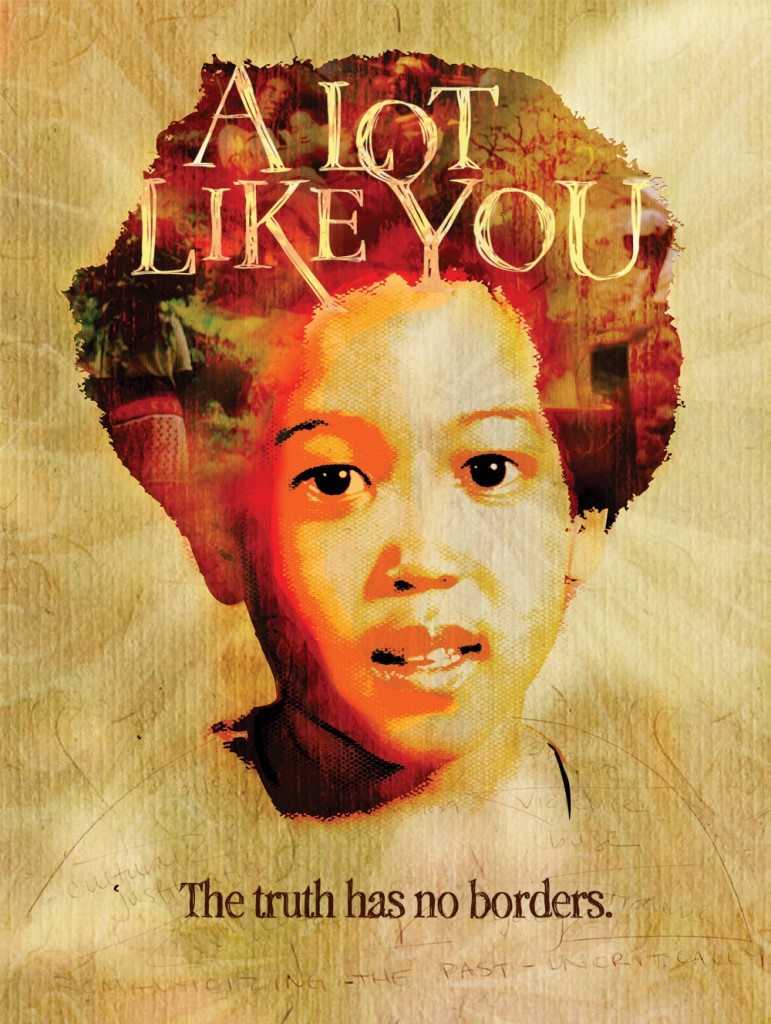ALLY in Educational Media Reviews Online
October 3, 2013A LOT LIKE YOU
Highly Recommended
Reviewed by Jennifer Dean
Graduate of the CUNY Graduate Center MALS program
with thesis on female filmmakers.
Date Entered: 9/5/2013
In A Lot Like You director Eliaichi Kimaro travels to Tanzania to learn of her father’s roots and gain a better understanding of her own background. Kimaro, American daughter to a Korean mother and a Tanzanian father, tells a global story through her very personal journey back to a homeland her father left many years ago for a life in the United States. A Lot Like You manages to tell a universal story through its specificity without being limited to an individual experience as can often happen in stories of memoir and self-discovery.
Kimaro shares with the audience intimate details of her life and her relationship with her father but only those that flesh out the narrative and issues being explored. On the website for the film Kimaro writes, “the creative team for A Lot Like You discovered a surprising paradox: the more personal, honest and vulnerable we got in our storytelling, the more universal our story became.” She goes on to inform the reader that originally the documentary was narrated by both Kimaro and her father, muddying the story. With her single point of view expressed in the narration, multiple perspectives and global issues are raised.
In regard to documentary and storytelling there are valuable lessons to be learned both in watching the film and visiting the website, perhaps even as a juxtaposition to Sarah Polley’s documentary (a father/daughter story with a very different discovery process) Stories We Tell (2012). Polley’s documentary deals primarily with questions of memory whereas A Lot Like You is rooted in consciousness. In the film the audience learns of the horrors of female circumcision told in incredible detail by Kimaro’s Aunts. They also break their silence and reveal the tradition of forced marriage through kidnapping. Subsequently Kimaro sits down with her father and mother in an interview where they examine the practice both personally and politically. Culture and politics play an important role in the film. Both the shortened educational version and the slightly longer feature film provide numerous insights applicable to numerous disciplines.
2012
Distributed by Collective Eye Films, 2305 SE Yamhill Street, Suite 101, Portland OR 97214; 503-232-5345
Produced by Eric Frith, Pete Droge and Thomas Kenney
Directed by Eliaichi Kimaro
DVD, 80 min.; 53 min. educational version also available
Sr. High – General Adult
African American Culture, Africa, Civil Rights, Economics, Education, Domestic Violence, Films, Health Sciences, International Studies, Interpersonal Communication, Multiculturalism, Political Science, Race Relations, Rape, Sexual Abuse, Women’s Rights
Awards
- Jason D Mak Social Justice Award, DisOrient Asian American Film Festival
- Best Documentary, San Francisco International Asian American Film Festival
- Best Documentary, Asian American International Film Festival
- Best Documentary, Female Eye Film Festival
- Best Documentary, Montreal International Black Film Festival
- Best Film Directed by a Woman of Color, African Diaspora International Film Festival

